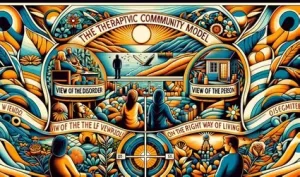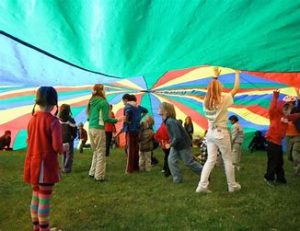When I look back at the last twenty years of my personal and professional journey, one theme rises again and again: community as a place of healing and growth. Whether in the therapeutic settings of residential homes or in intentional spiritual communities across the world, I have come to see that community is not just a support system — it is a living expression of the world itself. In many ways, each community is a microcosm of the macrocosm, reflecting back the larger patterns, challenges, and possibilities of the wider human family.
This insight is at the heart of my work within Therapeutic Communities (TCs) and my lived experiences of spiritual communal life. Both have offered me the opportunity to see how groups of people, when intentionally brought together, can become containers for transformation — places where individuals can not only heal old wounds but also rediscover meaning, connection, and belonging.
Over the weekend, I sat with dear friends and connected with their lived experiences at the Findhorn Community, which sparked many past experiences and memories, while also reaffirming the value and purpose of my current work in Therapeutic Communities. This blog is in their honour.
Community as a Microcosm of the World
In ancient traditions, there is a recurring principle: as above, so below. The idea that what is small reflects the larger whole is found in Hermetic wisdom, in Hindu philosophy, and in many Indigenous worldviews. Communities — whether a small residential home, an ashram, or even a family — embody this principle. They hold within them the same dynamics that play out on larger societal levels: cooperation and conflict, leadership and participation, boundaries and freedoms, healing and harm.
When we learn to navigate these dynamics within a community, we also develop the ability to manage them in the wider society. This is why I view communities not only as support structures but also as training grounds for life, identity, and relationships.
The Therapeutic Communities Model
 Professionally, one of the most energising and rewarding aspects of my work has been in the Therapeutic Communities model. This approach, which has roots in psychiatric care and residential children’s homes, recognises that healing does not happen only in therapy sessions. Instead, it is the whole environment that becomes the therapeutic agent. The daily routines, the shared meals, the moments of conflict and repair — all these are opportunities for growth.
Professionally, one of the most energising and rewarding aspects of my work has been in the Therapeutic Communities model. This approach, which has roots in psychiatric care and residential children’s homes, recognises that healing does not happen only in therapy sessions. Instead, it is the whole environment that becomes the therapeutic agent. The daily routines, the shared meals, the moments of conflict and repair — all these are opportunities for growth.
In TCs, staff and young people co-create a culture of openness, responsibility, and participation. Decision-making is shared where possible, routines are predictable yet flexible, and the emphasis is on relationship as the primary vehicle of change. Over the last ten years, I have witnessed how a child who once mistrusted adults can slowly rebuild that trust when every interaction, from morning greetings to conflict resolution, is held with consistency, respect, and care. And by giving them a voice, we empower them, creating something more important for these children than mere stability, we invest in their self-concept and confidence.
The TC model reinforces something I have long believed: healing happens in relationship. It is the daily living together, the small gestures of kindness, and the collective holding of boundaries that restore a sense of safety and belonging.
Spiritual Communities as Lived Experience
Alongside my professional work, I have spent another decade immersed in intentional spiritual communities across the world — from ashrams and meditation centres to shamanic retreats and communal living projects. These experiences have given me a different but complementary perspective.
In spiritual communities, the emphasis is not only on personal healing but also on collective awakening. Rituals, ceremonies, shared practices, and rhythms of daily life create a space where the individual soul can feel supported by the group in its search for truth and connection.
Living in such spaces has taught me the power of ritual and tradition in weaving people together, and how intentional living — eating, working, and reflecting together — can create a space where growth feels natural and inevitable. It is in this space where the strength and support of the group provide the gentle push that you might need, in the form of compassionate encouragement.
Bridging Theory and Practice
What links my work in TCs and my life in spiritual communities is a simple truth: community heals. It reflects who we are while also providing the support to become who we might be.
In therapeutic contexts, this translates into children and young people developing trust, regulation, and self-worth within a safe and participatory environment. In spiritual communities, it means adults deepening their connection to the sacred, the earth, and each other through shared practice and purpose.
Both paths affirm that when people come together with intention, they create a microcosm where healing, development, and transformation become possible. And in doing so, they reflect — and reshape — the larger world.
So, after two decades of living and working in various community settings, I remain deeply convinced of their power. A community, whether therapeutic or spiritual, is not merely a place to live or work — it is a living system that teaches, heals, and transforms. It is the bridge between the individual soul and the collective whole.
In this way, every community we build is more than a support structure: it is a vision of the world we wish to create, one relationship, one ritual, one shared moment at a time.
Thanks to J and P for the reminder.
Hari Om Tat Sat.